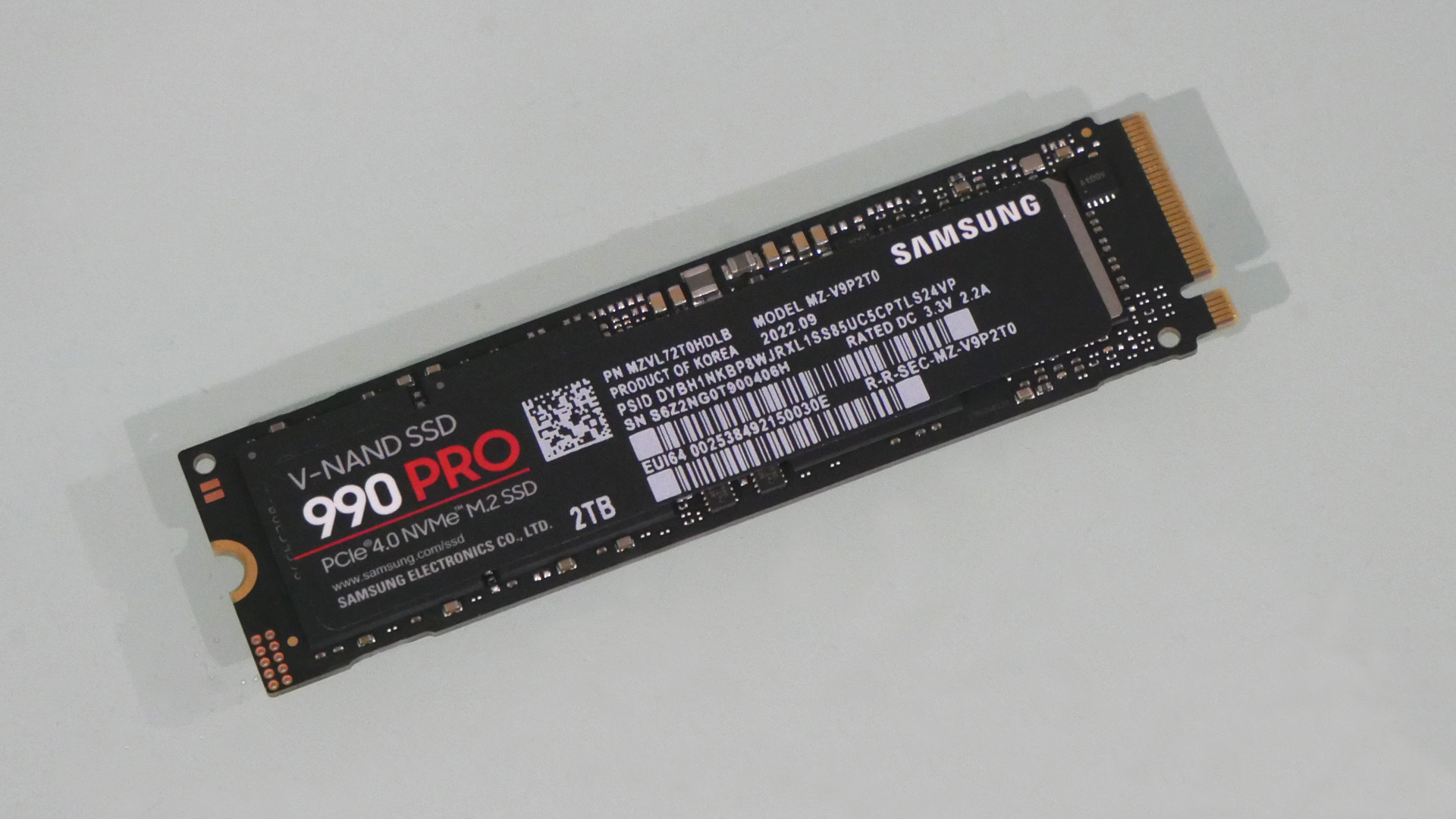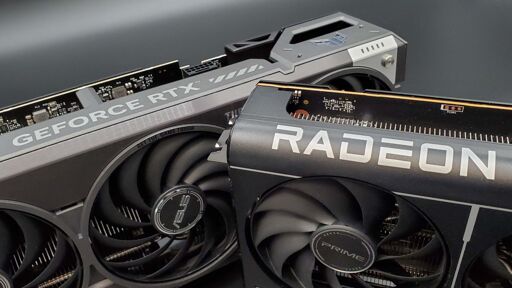A Reddit user has posted an alarming investigation into the disk activity associated with AMD’s PC graphics driver. Among other examples of heavy storage traffic, it turns out the AMD graphics driver is making hundreds of modifications to log files every time you move or resize a window. So, is the AMD graphics driver a clear and present danger to your SSD?
Probably not, actually.
Reddit user akia_Gecko has also uploaded a video to YouTube showing those log file writes by the AMD graphics driver in response to minor window movements. And it certainly looks pretty scary.
As akia_Gecko says, “every time you move a window or resize a window on your desktop, those files get modified multiple (hundreds!) of times.” Of course, SSDs can be read almost indefinitely, but writes cause actual wear. Hammer an SSD with enough writes, and you’ll kill it eventually.
However, it does not necessarily follow that AMD’s graphics driver will obliterate your SSD. Indeed, the AMD graphics driver probably isn’t doing anything abnormal, because this kind of data logging is normal behaviour for a device driver. The question is, how much data logging, exactly, is going on and at what point might it be problematic?
Here, a response to the original post on Reddit is helpful. "The worst I could get this to go is a little over 1 MByte/s. For comparison, a random access to the page file during my testing was 80 times worse (RAM wasn’t even at 40% utilization).

Your SSD needn’t fear the AMD driver. (Image credit: Future)
“The Samsung 990 Pro 2 TB is rated for 1200 TBW. You’ll need to be drawing windows around for 11.5 days to use 1 TBW of that. Or 38 years to reach the rated writes just using this bug.”
You then also have to factor in drive caching. Not every byte of data sent to your SSD is immediately written to the actual flash memory cells. Lots of tiny writes as per the AMD driver logging, as opposed to one big write that doesn’t fit into the cache, are exactly the kind of traffic which the SSD cache memory is designed to mitigate.
In other words, yes the AMD graphics does make a lot of writes to your SSD. But they don’t actually add up to anything significant in terms of drive wear.
Indeed, Windows is notorious for having what you might call an overall disk write “problem.” Compared to Linux, it scarcely lets your storage have an idle moment. So, the AMD driver is but a small part of that activity.
At worst you could argue that given Windows tends to be a bit of an over sharer with storage devices, it would be welcome if the AMD graphics driver didn’t add to that. But then event logging is an important part of driver quality and reliability.
So, we can chalk this one down as an interesting insight into how a modern PC actually works. There’s a lot going on in the background. But we probably don’t need to panic about all of it.
&
Best graphics card 2025
All our current recommendations
Pick a category Best overallCore ComponentsChairs & DesksSystems & LaptopsScreensPeripheralsCases, Cooling & Storage Choose a list Best CPU for gaming 2025Best graphics card 2025Best gaming motherboard 2025Best Mini-ITX motherboardBest RAM for gaming 2025  BEST OVERALL 1. AMD Radeon RX 9070 Check Price
BEST OVERALL 1. AMD Radeon RX 9070 Check Price  BEST VALUE 2. AMD Radeon RX 9060 XT 16 GB Check Price
BEST VALUE 2. AMD Radeon RX 9060 XT 16 GB Check Price  BEST BUDGET 3. Intel Arc B570 Check Price
BEST BUDGET 3. Intel Arc B570 Check Price  BEST MID-RANGE 4. Nvidia GeForce RTX 5070 Ti Check Price
BEST MID-RANGE 4. Nvidia GeForce RTX 5070 Ti Check Price  BEST HIGH-END 5. Nvidia GeForce RTX 5090 Check Price Read the full guide: Best graphics card 2025POWERED BY
BEST HIGH-END 5. Nvidia GeForce RTX 5090 Check Price Read the full guide: Best graphics card 2025POWERED BY &&&&&&&&&&&&&&&&&&&&&&&&&&&&&&&&&&&&&&&&&&&&&&&&&&&&&&&&&&&&&&&&&&&&&&&&&&&&&&&&&&&&&&&&&&&&&&&&&&&&&&&&&&&&&&&&&&&&&&&&&&&&&&&&&&&&&&&&&&&&&&&&&&&&&&&&&&&&&&&&&&&&&&&&&&&&&&&&&&&&&&&&&&&&&&&&&&&&&&&&&&&&&&&&&&&&&&&&&&&&&&&&&&&&&&&
&&&&&&&&&&&&&&&&&&&&&&&&&&&&&&&&&&&&&&&&&&&&&&&&&&&&&&&&&&&&&&&&&&&&&&&&&&&&&&&&&&&&&&&&&&&&&&&&&&&&&&&&&&&&&&&&&&&&&&&&&&&&&&&&&&&&&&&&&&&&&&&&&&&&&&&&&&&&&&&&&&&&&&&&&&&&&&&&&&&&&&&&&&&&&&&&&&&&&&&&&&&&&&&&&&&&&&&&&&&&&&&&&&&&&&&
From PCGamer latest via this RSS feed


